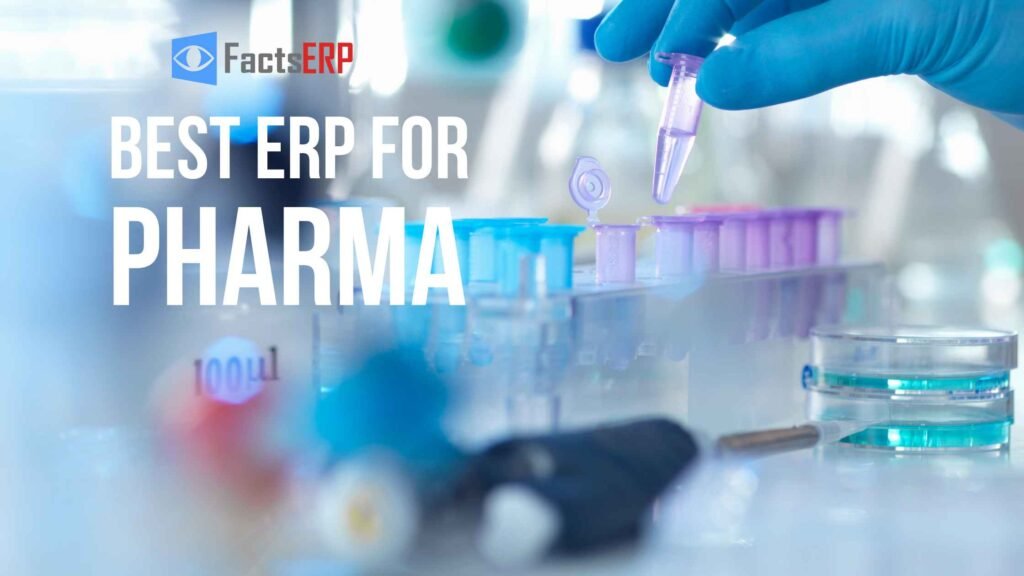ERP Implementation Challenges and Solutions for Pharmaceutical Industry
ERP Implementation Challenges and Solutions for Pharmaceutical Industry

Pharmaceutical production companies are highly regulated and operate in a dynamic and competitive market. To remain competitive and compliant, these companies need to manage their production processes efficiently and effectively. One way to achieve this is by implementing a customized ERP solution. However, ERP implementation can be a challenging and complex process that requires careful planning and execution. In this blog, we will explore some of the most common challenges of ERP implementation for pharmaceutical Industry and suggest solutions to overcome them.
Challenge #1: Process complexity
Pharmaceutical production involves numerous processes, from research and development to manufacturing and distribution. These processes are highly regulated, and any deviation from the standard operating procedures can have severe consequences. Implementing an ERP system that can manage these processes can be a complex and challenging task.
Solution: To address this challenge, it is essential to identify all the processes involved in pharmaceutical production and their dependencies. Develop a comprehensive process map that includes all process steps, data inputs and outputs, and process owners. Use this map to identify areas of improvement and develop a customized ERP system that can manage these processes efficiently. Also, involve process owners and subject matter experts in the ERP implementation process to ensure that the system meets their specific needs.
Challenge #2: Data management
Pharmaceutical production involves vast amounts of data, including product specifications, batch records, manufacturing instructions, and quality control data. This data needs to be managed efficiently to ensure that products meet regulatory requirements and quality standards.
Solution: To address this challenge, it is essential to establish a data management plan that includes data governance, data quality, and data security policies. Ensure that data is stored in a centralized location and that there are clear protocols for data entry, validation, and maintenance. Use data analytics tools to identify and resolve data issues and ensure that the ERP system integrates with other systems.
Challenge #3: Regulatory compliance
Pharmaceutical production companies must comply with numerous regulations, including Good Manufacturing Practices (GMP), Good Laboratory Practices (GLP), and others. The ERP system must support these requirements, ensuring that all processes and data meet regulatory standards.
Solution: To overcome this challenge, it is essential to select an ERP system that is designed specifically for the pharmaceutical industry and that supports compliance with regulatory requirements. Ensure that the system has features such as audit trails, electronic signatures, and document control that comply with GxP regulations. Also, ensure that the ERP vendor has experience working with pharmaceutical production companies and has a thorough understanding of the regulatory landscape.
Challenge #4: Quality control
Pharmaceutical production companies need to ensure that their products meet quality standards and specifications. This requires robust quality control processes and systems.
Solution: To address this challenge, it is essential to develop a quality control plan that includes all the necessary tests, inspections, and audits. Use the ERP system to manage quality control data and ensure that the system integrates with other quality control systems, such as LIMS and QMS. Also, use the ERP system to track product quality and identify areas of improvement.
Challenge #5: Change management
Implementing an ERP system can cause significant changes to processes, workflows, and organizational structure. This can cause resistance and confusion among employees who may not understand the benefits of the new system.
Solution: To address this challenge, it is essential to provide comprehensive training and change management support. Develop a training plan that includes both classroom and hands-on training, and provide ongoing support to ensure that employees are comfortable using the system. Communicate the benefits of the new system and involve employees in the implementation process, encouraging them to provide feedback and suggestions.
FactsERP can be very helpful in pharmaceutical production. FactsERP provides a centralized platform for managing various aspects of production, including inventory management, quality control, and regulatory compliance. By using FactsERP, pharmaceutical companies can streamline their production processes, reduce errors and waste, and increase overall efficiency. The system can also provide real-time data and analytics, allowing for better decision-making and faster response times to changes in the production process. Overall, FactsERP can help pharmaceutical companies improve their productivity, reduce costs, and ensure compliance with industry regulations.
